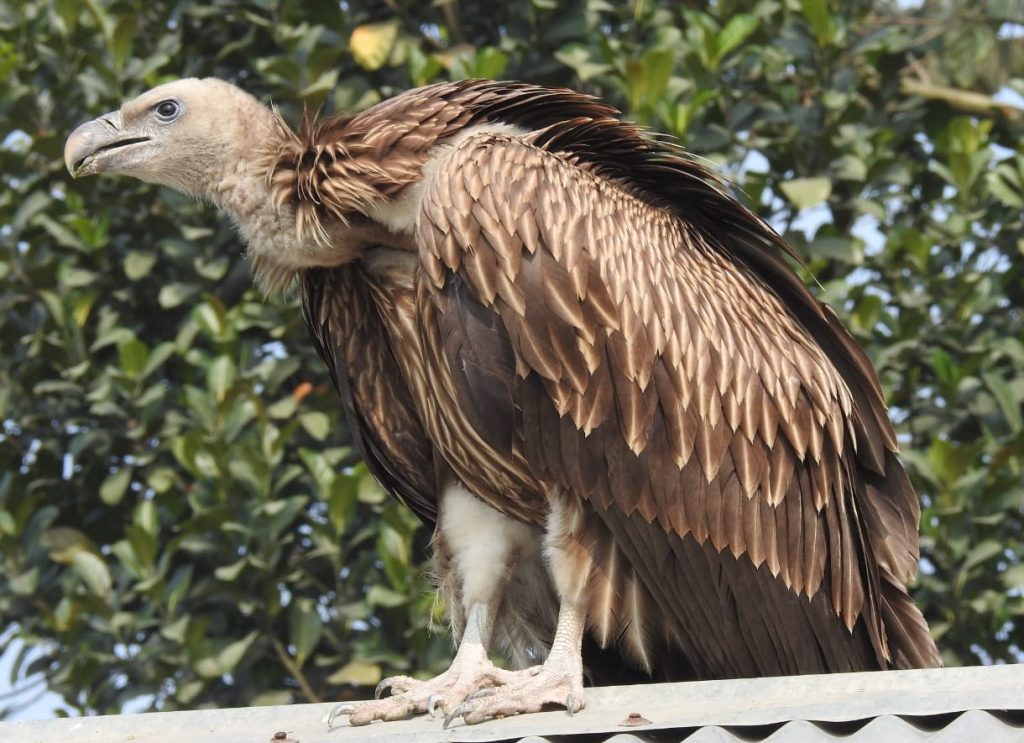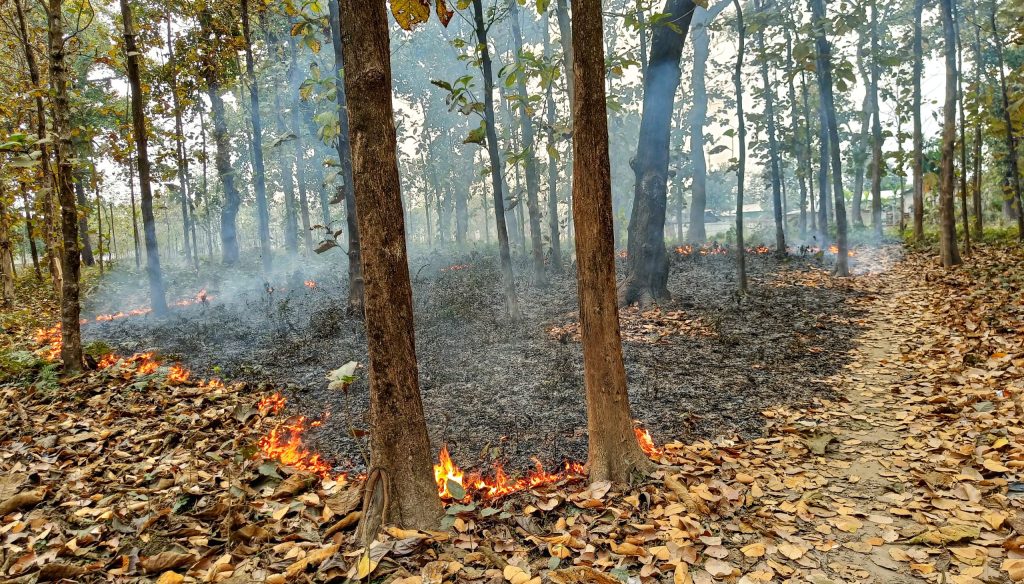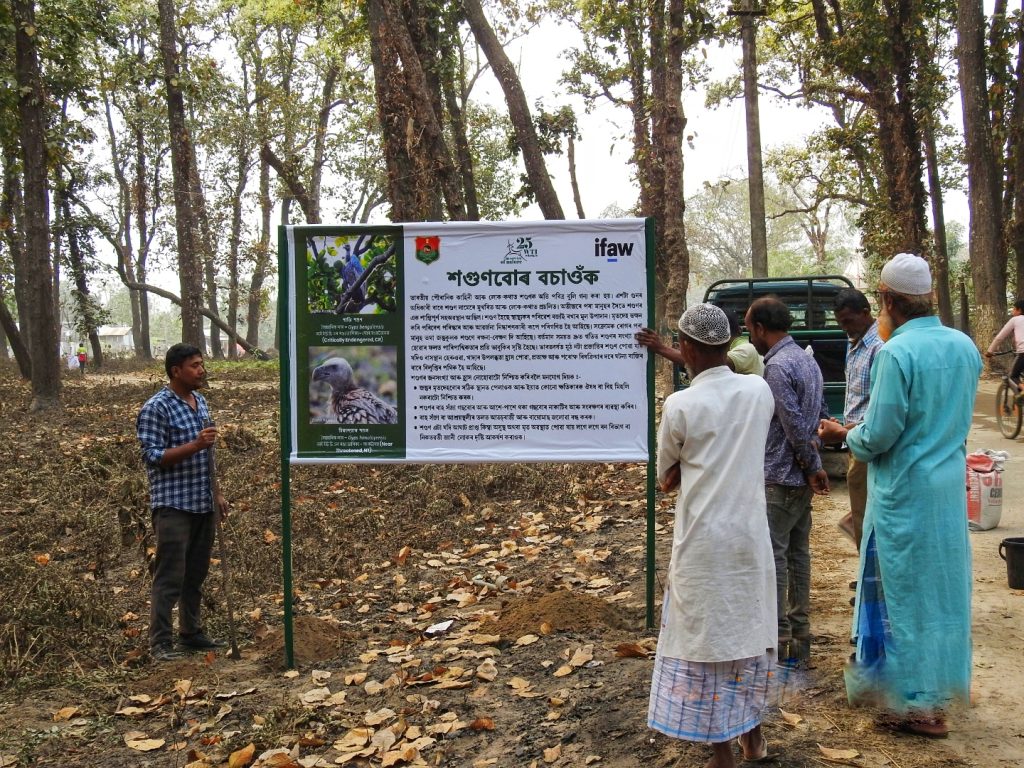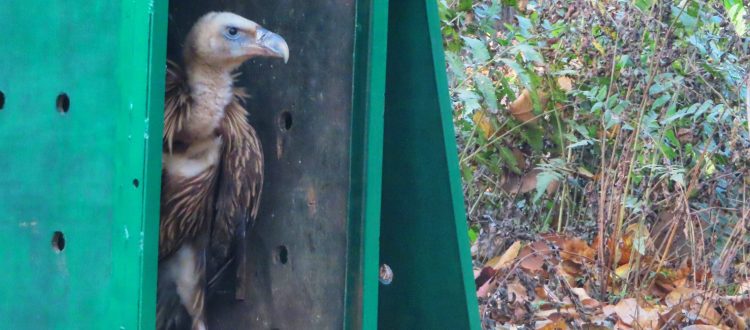Protecting the scavengers of Assam
Largely misunderstood, vultures continue to play a pivotal role in the health of our wild ecosystems. Scavenging on and cleaning off animal carcasses, they actively remove pathogens and related contaminants from our environment.
Sadly, their population has been highly threatened across the country due to the use of diclofenac, a banned pain killer, for livestock treatment. There are also reports of mass mortality, both from across India and from around the world, linked to the deliberate or accidental poisoning of Gyps vultures with pesticides to kill the predators, including stray dogs.

Himalayan griffon vulture near Mahamaya Reserve Forest | Photograph by Bishal Kashyap
Threats to the vultures of Mahamaya Reserve Forest
Located on the boundary of the Kokrajhar and Dhubri districts in western Assam, Mahamaya Reserve Forest is known for its rich biodiversity, including two species of vultures – White-rumped vulture (Gyps bengalensis) and Himalayan griffon (Gyps himalayensis). Over the past few years, however, there has been a rapid decline in the bird population.
“Carcass poisoning targeting stray dogs and other pests are a threat to the vultures as they become an unintended victim. Also, there are no specific dumping grounds for dead livestock and thus they are either buried, burned, or discarded on the fringes of forests,” says Bishal Kashyap, a research scholar from the Dept. of Zoology, Gauhati University.
But, it’s not just livestock poisoning, but several other factors that have been contributing to the decline of the vulture population in Mahamaya RF. Rapid deforestation and burning of biomass below nesting trees have also been resulting in habitat destruction of the birds.

Burning of Biomass below nesting trees of vultures in Mahamaya RF | Photograph by Bishal Kashyap
A Rapid Action Project (RAP) to Save Mahamaya’s Vultures
Bishal, with support from the Wildlife Trust of India, undertook a RAP to address the emergency. He started by surveying and identifying locations for the presence of the vulture population to prioritise the conservation efforts. Initial findings reported between 15 and 18 White-rumped vultures (Gyps bengalensis) in Mahamaya and between 8 and 10 individuals in Makrijhora. He was also able to sight Himalayan griffons (Gyps himalayensis) on a few occasions, during the survey.
The next step was to involve and sensitize the community on the importance of vultures to the ecosystem and the actions needed to be taken for their protection. Discussions involved creating and monitoring the common dumping grounds for domestic animal carcasses and protecting nesting trees. A team of two volunteers from each of the two villages was further formed to monitor nesting sites and report cases of vulture poisoning and injuries. This has helped the rescue and rehabilitation of two vultures (each one White-rumped and one Himalayan griffon) in collaboration with the IFAW-WTI’s Mobile Veterinary Service, Western Assam (MVS-WA) a satellite station of Centre for Wildlife Rehabilitation and Conservation (CWRC) Kaziranga.

Vulture conservation signage in strategic locations around villages near Mahamaya RF | Photograph by Bishal Kashyap
To further spread awareness on vulture conservation, the team has put up signage in all the villages and has distributed posters in schools and offices nearby. “We hope that this project will help communities understand the role of vultures in the ecosystem and everyone comes together to save this unique species”, says Dr. Daoharu Baro, veterinarian at WTI’s MVS-WA, Kokrajhar. Dr. Baro also emphasised the importance of studying the threat posed by diseases in the vulture population.
Rapid Action Projects such as this, provide urgent critical support to local individuals and organizations to nip wildlife emergencies in the bud.









